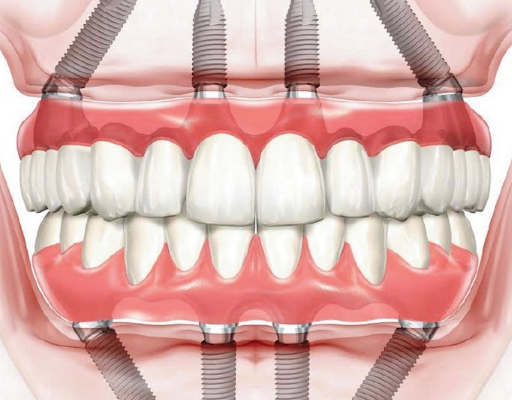To improve your smile, you have decided to contact your dentist for the application of one (or more) aesthetic dental crowns. And now? Do you already know what the surgery will entail and the right habits to take care of your “new” mouth? Below you will find all the useful information.
Table of Contents
What is a dental crown?
The dental crown is a fixed prosthesis that replaces the tooth’s natural crown to restore its functionality and improve its appearance. Generally, the dentist uses it when the dental element is compromised so much that it has to be completely covered: think, for example, of a broken or chipped tooth or a devitalized tooth that has little intact tissue.
More and more often, however, patients require the application of aesthetic dental crowns or capsules that aim to improve the aesthetics of the smile. The capsule can be made of different materials and is fixed by the dentist with cement.
What is the post-operative course of dental implants?
1. A nice smile
Whatever the reason that led you to enter your dentist’s office, you certainly expect to come out with the best of your smiles. It is an important element, and, apart from facial reconstruction cases, it is an operation that has considerable aesthetic consequences, even if the dental implant installation is not considered a real “aesthetic” surgery.
2. Some rare bleeding
after dental implant swelling
Even if this is a routine operation for your dentist, it is completely normal that there may be minor bleeding in the days following the operation. You don’t have to worry at all, and it’s just one of the minor inconveniences of the operation.
3. Post-operative pain
Unfortunately, pain, however mild it may be, is part of the post-operative outcome of dental implants. Its intensity can vary from patient to patient, depending on their pain tolerance and their level of anxiety. Your dentist will prescribe antibiotics and pain relievers to relieve the discomfort. And he will almost certainly advise you to take a day off to reduce your daily activities.
4. Swelling
Sometimes it can happen to manifest some swelling in the operated area. You don’t have to worry too much, and your dentist will advise you to apply an ice pack, which he will provide himself in some cases. This symptom typically lasts no longer than a week and reaches its peak 24 to 72 hours after surgery.
5. Bruising after implantation
Bruises usually appear 72 hours after surgery. If this is the case, apply a warm compress to the area to promote blood circulation and reduce the hematoma. It is advisable to limit activities that can increase blood pressure until the complete remission of bruises if they appear.
Dental implant pain after a month; why? What to do?
It is necessary after surgery to follow all the surgeon’s instructions and, in particular, to pay attention to oral hygiene, which must be constant and meticulous in keeping the operated part in excellent health. Oral hygiene is the main cause of peri-implantitis, bacterial infection around the implant structure.
If you feel pain in a dental implant after a month, it is necessary to contact the dentist’s clinic or go to the facility for a check-up.
Antibiotic therapy will have to be prescribed to eliminate the infection caused by the bacteria and then to thoroughly clean the implant surface to eliminate the accumulated bacterial plaque.
In more serious cases, it is advisable to remove the implant.





